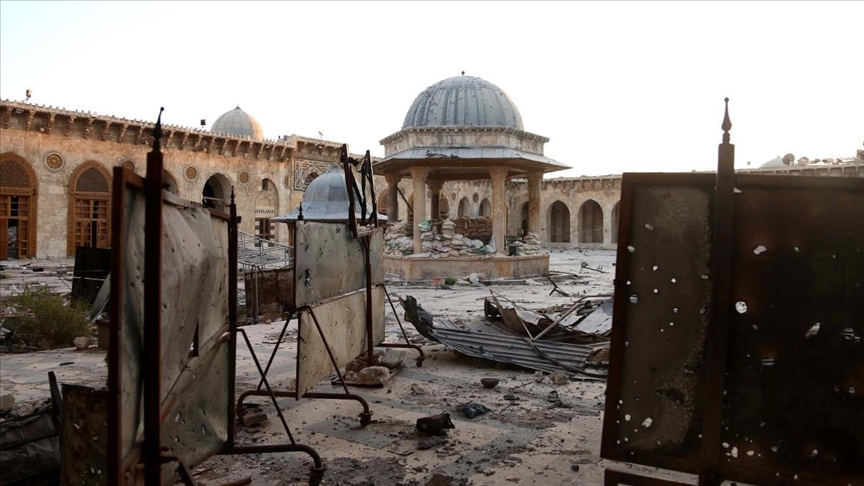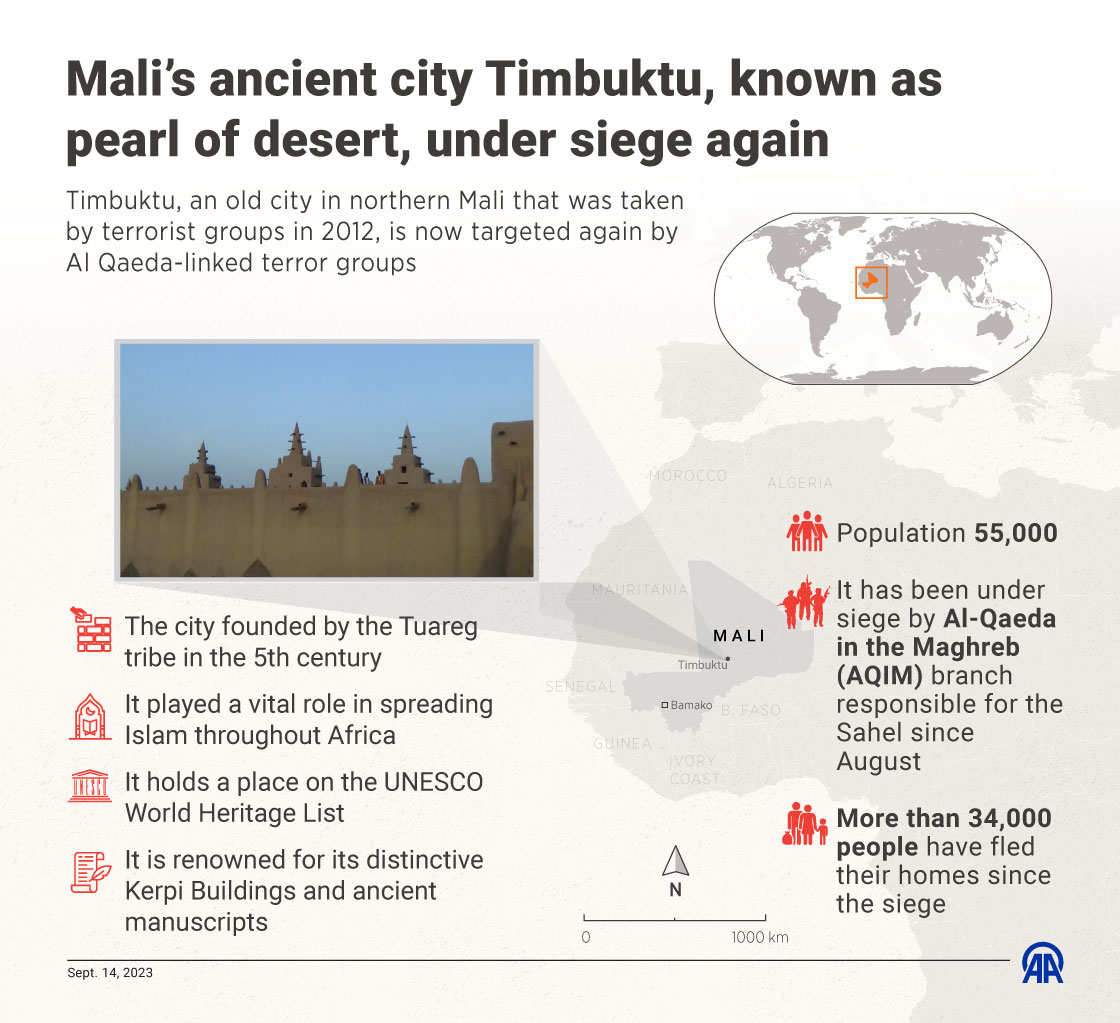Mali’s ancient city Timbuktu under siege again
Terrorist groups affiliated with al-Qaeda in northern Mali have been blockading city since August

DAKAR, Senegal
Timbuktu, the historic city situated in northern Mali, has once again become the focal point for terrorist organizations operating in the Sahel region.
Nestled in the southern part of the Sahara Desert, Timbuktu is renowned for its iconic adobe structures, madrasahs that have significantly shaped Islamic civilization, and its invaluable collection of manuscripts.
For the past month, it has fallen under the control and siege of Jama'at Nusrat al-Islam wal-Muslimin (JNIM), an offshoot of al-Qaeda in the Maghreb (AQIM) responsible for the Sahel.
JNIM's influence in the area began when the UN mission, known as MINUSMA, evacuated its camps in response to the request from the Bamako administration.
The evacuation of the Ber camp, situated nearly 50 kilometers (31 miles) east of Timbuktu, and its subsequent handover to the Malian army, triggered confrontations between the army and former rebel groups that had laid down their arms in accordance with the 2015 Algiers Peace Agreement.
While skirmishes flared up between the army and the Coordination of Azawad Movements (CMA), composed of these disarmed groups, JNIM seized the opportunity to advance and encroach upon the borders of Timbuktu.
In August, Talha Abou Hind, the so-called JNIM commander for the Timbuktu region, declared war against the Malian army, citing their involvement with "Wagner mercenaries" as a reason. This escalation resulted in the blockage of trucks carrying essential supplies to Timbuktu.

Air, land transportation stopped
The situation in Timbuktu has grown increasingly dire, with air and land transportation coming to a halt, forcing more than 34,000 residents to flee the city.
Road access to Timbuktu has been cut off since August, and tragically, on Sept. 7, a rocket attack targeted the only passenger ferry plying the Timbuktu-Bamako route on the Niger River, resulting in the loss of 49 lives.
Adding to the chaos, Timbuktu Airport faced security threats as three artillery shells fell perilously close, prompting Sky Mali, the sole airline serving Timbuktu, to suspend flights on Sept. 11.
With both air and land routes compromised, even ferry transportation on the Niger River was suspended following the attack.
Some local residents had already decided to leave the city in the wake of the initial statement issued by JNIM in August.
According to a report by OCHA, approximately 33,000 people sought refuge in other cities within the region, while 1,000 people sought refuge in Mauritania.
Timbuktu, once hailed as the scientific epicenter of Africa, also fell under the control of terrorist groups nearly a decade ago.
Anadolu Agency website contains only a portion of the news stories offered to subscribers in the AA News Broadcasting System (HAS), and in summarized form. Please contact us for subscription options.

